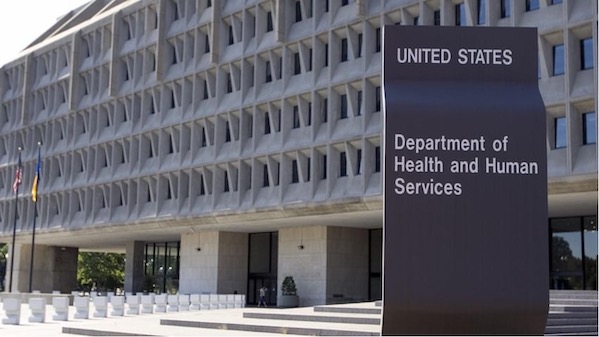HHS argues Merck ‘lacks standing’ to sue over Medicare price negotiations
September 15, 2023
Source: drugdu
 308
308

Merck & Co. was the first drugmaker to sue over the controversial Medicare price negotiation provisions in last year’s Inflation Reduction Act (IRA). But the New Jersey drug giant “lacks standing” to challenge the law in court, the Biden administration argued in a new filing.
Monday, the Department of Health and Human Services (HHS) argued that Merck can’t sue the agency because it isn’t the primary manufacturer for the diabetes med Januvia—one of 10 medications up for the first round of price negotiations in 2026.
Simply put, HHS argues a Merck subsidiary is the company set to face the negotiation process, not Merck itself.
Merck has argued it stands to suffer harm from the price negotiations because it developed and markets Januvia. But that assertion is “incorrect,” according to HHS, because a "non-party" to the lawsuit, Merck Sharp & Dohme, holds the FDA license to Januvia.
"Accordingly, [the Centers for Medicare & Medicaid Service (CMS)] has asked MSD to participate in the Negotiation Program—and MSD is the entity that faces the legal obligations that Merck supposedly fears," the agency said in the filing.
When reached for comment, Merck pointed to its original statement around its lawsuit published in June. The company plans to respond to HHS' latest argument in court, a company spokesperson added over email.
"We are confident that this argument lacks merit and that the government will not succeed in stalling an adjudication of the substance of this lawsuit," he said.
Merck & Co. was the first drugmaker to sue over the controversial Medicare price negotiation provisions in last year’s Inflation Reduction Act (IRA). But the New Jersey drug giant “lacks standing” to challenge the law in court, the Biden administration argued in a new filing.
Monday, the Department of Health and Human Services (HHS) argued that Merck can’t sue the agency because it isn’t the primary manufacturer for the diabetes med Januvia—one of 10 medications up for the first round of price negotiations in 2026.
Simply put, HHS argues a Merck subsidiary is the company set to face the negotiation process, not Merck itself.
Merck has argued it stands to suffer harm from the price negotiations because it developed and markets Januvia. But that assertion is “incorrect,” according to HHS, because a "non-party" to the lawsuit, Merck Sharp & Dohme, holds the FDA license to Januvia.
"Accordingly, [the Centers for Medicare & Medicaid Service (CMS)] has asked MSD to participate in the Negotiation Program—and MSD is the entity that faces the legal obligations that Merck supposedly fears," the agency said in the filing.
When reached for comment, Merck pointed to its original statement around its lawsuit published in June. The company plans to respond to HHS' latest argument in court, a company spokesperson added over email.
"We are confident that this argument lacks merit and that the government will not succeed in stalling an adjudication of the substance of this lawsuit," he said.
Boehringer, for its part, argued that the price talks would step on its “constitutional and statutory rights.”
That argument is similar to the one made by other drugmakers who’ve sued, such as Merck, BMS and J&J, along with the trade group PhRMA and the U.S. Chamber of Commerce.
https://www.fiercepharma.com/pharma/hhs-issues-procedural-challenge-against-merck-cos-medicare-price-negotiation-lawsuit
By editorRead more on
- The first subject has been dosed in the Phase I clinical trial of Yuandong Bio’s EP-0210 monoclonal antibody injection. February 10, 2026
- Clinical trial of recombinant herpes zoster ZFA01 adjuvant vaccine (CHO cells) approved February 10, 2026
- Heyu Pharmaceuticals’ FGFR4 inhibitor ipagoglottinib has received Fast Track designation from the FDA for the treatment of advanced HCC patients with FGF19 overexpression who have been treated with ICIs and mTKIs. February 10, 2026
- Sanofi’s “Rilzabrutinib” has been recognized as a Breakthrough Therapy in the United States and an Orphan Drug in Japan, and has applied for marketing approval in China. February 10, 2026
- Domestically developed blockbuster ADC approved for new indication February 10, 2026
your submission has already been received.
OK
Subscribe
Please enter a valid Email address!
Submit
The most relevant industry news & insight will be sent to you every two weeks.



